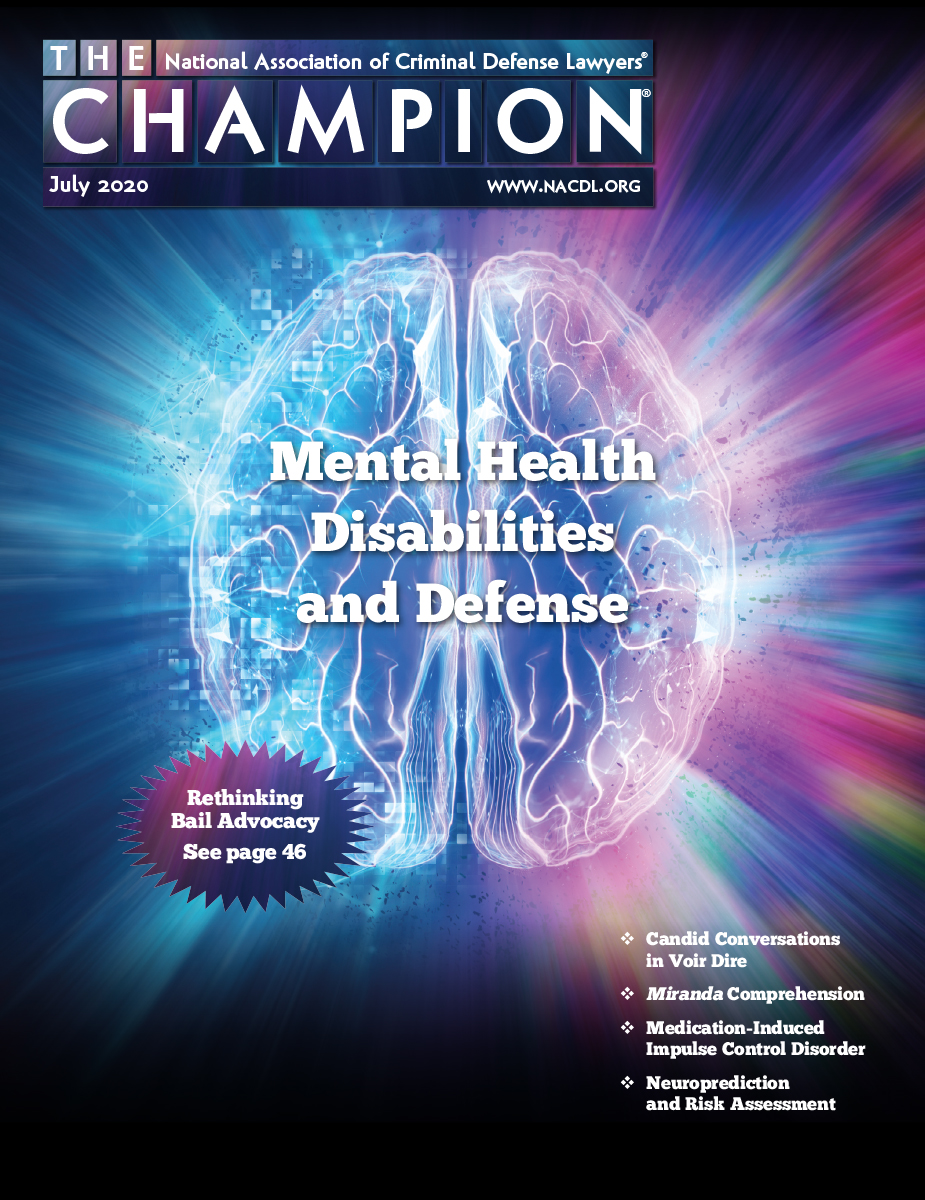July 2020

Conducting voir dire when the client has a mental health disability. Action steps for litigating detention hearings.
Articles in this Issue
-
‘Who Thinks a Mental Health Disability Defense Is Bullsh*t?’
and Other Candid Conversations in Voir Dire
Any time the defense team presents evidence of a client’s mental illness, it does so to explain why the client did something unthinkable. Attorney and trial consultant Denise de La Rue discusses how defense lawyers can find jurors who are willing to listen and will not say “bullsh*t” when counsel uses the terms “mental illness” and “developmental disability.” She provides a juror questionnaire for cases involving mental health issues.
-
Affiliate News
What events are NACDL affiliates hosting this month? Find out here.
-
Ask Not What Miranda Has to Do with You (and Your Clients): What Can You Do with Miranda?
The protections afforded by Miranda are meaningless if no one identifies when a defendant may have been incapable of rendering a voluntary and intelligent waiver of rights. The “professional neglect hypothesis” addresses situations in which attorneys and forensic practitioners fail to screen for Miranda issues. The authors specify cognitive impairment as one of the most prominent domains for potential Miranda-related impairment.
-
Book Review: Criminality in Context by Craig Haney
This month Russell Stetler reviews Criminality in Context: The Psychological Foundations of Criminal Justice Reform by Craig Haney.
-
From the President: Women in the Criminal Justice System | We Still Have Work to Do
Although women are comprising an ever-larger part of the prison population, they are being housed in a correctional system that was primarily designed for men.
-
Medically Induced Criminal Conduct: Defending the Parkinson’s Disease Patient
Medications used to treat Parkinson’s disease can lead to patients experiencing intense urges to gamble, increased sexual urges, and strong desires to spend money. This means Parkinson’s patients can find themselves committing crimes when they begin to suffer from a medically induced impulse control disorder. The authors provide a primer on how defense attorneys can improve their representation of these vulnerable clients.
-
Rethinking Federal Bail Advocacy to Change the Culture of Detention
The Bail Reform Act was supposed to authorize detention for a narrow set of people: those who are highly dangerous or pose a high risk of absconding. But in many cases, judges and prosecutors are jailing people for reasons not allowed by the statutory rules. It is time to bring federal pretrial detention practices back in line with the law.
-
Risk Assessment Update: Remembering to Track Imaging-Based Neuroprediction
as Part of the Risk Assessment Panorama
Researchers have expressed enthusiasm for the study of the “biology” of crime and the related development of “neuroprediction,” one aspect of which is the attempt to use brain imaging techniques to corroborate a risk of violence assessment. While lawyers are not yet likely to encounter neuroscience evidence when they litigate the admissibility of a prediction of future violence, they should track developments in this area.
